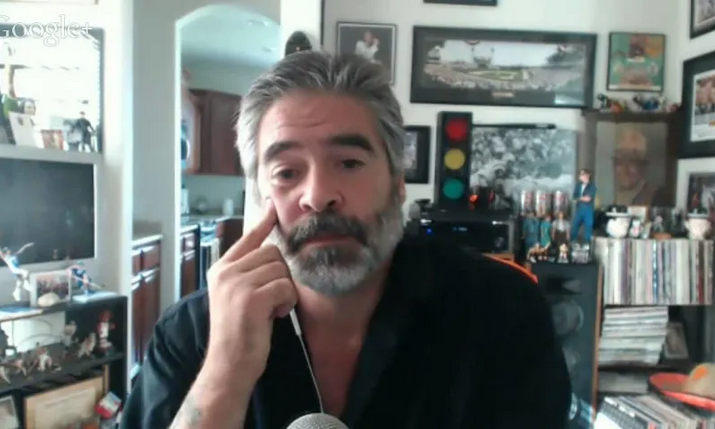
Vince Russo was not a fan of Cody Rhodes’ promo on WWE RAW last week.
The former WWE creative writer stated that fans are not interested in seeing wrestlers who show their emotions as Rhodes became emotional while discussing his late father, Dusty Rhodes. Russo said,
“Cody, get therapy, man. Every freaking week, this guy is going out, cutting promos, he can’t get through a promo without crying. Casual wrestling fans, we don’t want to see wrestlers cry, bro. We want to see men’s men, we want to see wrestlers, we want to see testosterone, bro. We don’t want to see namby-pamby crybabies. What, Cody? You’re going to give your mother a prop that you didn’t win? And you’re going to get all choked up about it? How anybody can be a fan of this guy as a babyface, bro, crying over a prop … Bro, he’s got himself convinced that he’s going to really win a match and have a real title and, ‘I’m gonna give this title to my mom and my dad, even though he’s not here, he is gonna be proud.’“
Vince Russo Criticizes Cody Rhodes’ Emotional Promo on WWE RAW
Last week, Cody Rhodes delivered an emotional promo on WWE RAW, paying tribute to his late father, Dusty Rhodes. However, not everyone was impressed with his display of emotions. Vince Russo, a former WWE creative writer, expressed his disapproval of Rhodes’ promo, stating that fans are not interested in seeing wrestlers cry.
Russo’s criticism revolves around the idea that wrestling fans want to see strong and tough individuals in the ring, not “namby-pamby crybabies.” He argues that the audience craves testosterone and the image of “men’s men” rather than wrestlers who show vulnerability.
In his comments, Russo suggests that Rhodes should seek therapy and refrain from getting emotional during his promos. He questions Rhodes’ decision to give his mother a prop that he didn’t win and expresses disbelief that anyone can be a fan of Rhodes as a babyface (a good guy character) when he cries over a prop.
Russo’s critique also touches on Rhodes’ belief that he will eventually win a match and obtain a real title. He finds it difficult to understand how Rhodes can convince himself that winning a match and giving a title to his deceased father would make him proud.
While Russo’s opinion may be controversial, it is important to note that wrestling is a form of entertainment that often relies on storytelling and emotional connections with the audience. Wrestlers often use personal experiences and emotions to connect with fans on a deeper level.
Cody Rhodes’ emotional promo was an attempt to honor his father’s legacy and create an emotional connection with the audience. Many fans appreciated the heartfelt tribute and found it relatable. However, it is also understandable that not everyone resonated with the emotional aspect of the promo.
Different fans have different preferences when it comes to wrestling. Some enjoy the more traditional, tough-guy characters, while others appreciate the vulnerability and emotional depth that wrestlers like Cody Rhodes bring to their performances.
Ultimately, wrestling is a diverse industry that caters to a wide range of fans with varying tastes. While Vince Russo may not appreciate emotional promos, there are undoubtedly fans who do. The beauty of wrestling lies in its ability to offer something for everyone, whether it’s intense action, compelling storytelling, or emotional connections.
In conclusion, Vince Russo’s criticism of Cody Rhodes’ emotional promo on WWE RAW reflects his personal preference for wrestlers who exude toughness rather than vulnerability. However, it is important to recognize that wrestling is a form of entertainment that can evoke a wide range of emotions. Different fans have different tastes, and what resonates with one person may not resonate with another. Ultimately, it is up to the individual wrestlers to find their own unique style and connect with their audience in a way that feels authentic to them.
